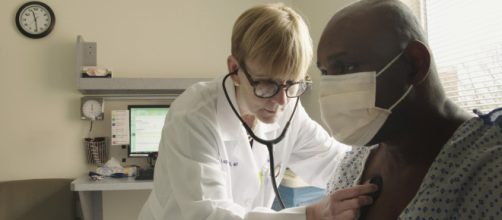Netflix has built a solid reputation since 2015 with the "Making a Murder" program based on real crimes, and now seems to have found its new vein in "Diagnosis," a fashionable sub-genre of documentaries.
The series of seven episodes on strange medical mysteries is based on the chronicles described by Dr Lisa Sanders, a doctor from New York, in the New York Times magazine. In her work, Dr Sanders refers not only to illnesses that are difficult to diagnose but also to the personal stories of those who suffer from them.
Pain in the legs of a young woman, the memory loss of a 40-year-old veteran, a girl suffering from convulsions, two patients affected by an unexplained paralysis and the various emotional changes of the protagonists, constitute the plot of each of the episodes of "Diagnosis".
(Theme that TNT is also exploring in the series "Chasing the Cure" by Ann Curry).
Illnesses explained in simple terms under Dr Sanders' guidance
Dr Sanders, a consultant for "House" by Hugh Laurie, another Fox hit, guides the audience through each episode, explaining in simple terms the terminology of the illnesses that make up each story; illnesses that require weeks and even months of research. In the meantime, those affected receive a second opinion from physicians, other patients and civilians equally interested in patients' ailments from the medical point of view.
And in this interaction patients can find both definitive diagnosis and cure for their ailments and the necessary solidarity so that they stop feeling alone.
A seductive and hopeful message to the audience
Hence, the exposed cases do not necessarily end in tragic endings, although not all, of course, are happy either. People are attracted to these stories that look like real life. Netflix is always looking for new strategies to reach a wider audience.
Likewise, "Diagnosis" shows how the medical profession delves into the most difficult issues and how the behaviour of certain physicians, who interact with patients, can help or harm them, especially when sexist or racist factors are involved. The lack of adequate diagnosis and treatment in some patients is also attributed to social discrimination, according to Dr Sanders.
Another of the "hooks" of "Diagnosis" to maintain the interest of the audience is the preview at the end of each episode of what viewers will see in the next chapter, dosing the respective amounts of comfort and cure.
The series also focuses on raising the possibilities of people overcoming these possibilities offered by a costly, slow, and unmodified health system. Hence, ultimately, the hopeful message to people.




